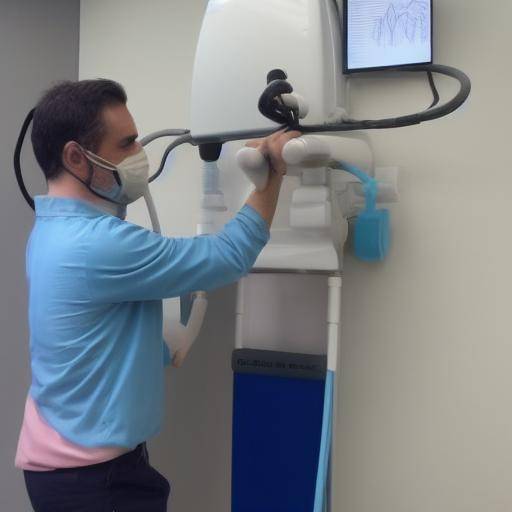
Deep breathing is an ancestral practice that has proven to have positive effects on emotional balance and physical well-being. Learning to breathe consciously and deeply can be a powerful tool to reduce stress, calm anxiety and improve quality of life. In this article, we will explore in detail how deep breathing can contribute to greater emotional balance and physical well-being. From its historical origins to its practical application in everyday life, we will discover the many facets and benefits of this millenary technique.
History and background
The practice of deep breathing has its roots in ancient traditions of oriental wisdom, such as yoga, tai chi and meditation. These disciplines have for centuries recognized the importance of conscious breathing as a means of achieving inner harmony. Throughout history, emblematic figures from different cultures have highlighted the importance of breathing for health and emotional balance. From Greek philosophers to Eastern spiritual masters, it has been understood that deep breathing is a gateway to inner calm. Even in modern medicine, the importance of breathing in stress management and anxiety has been reconstructed.
Deep analysis
Deep breathing has significant effects on physical and emotional well-being. Scientific studies have shown that slow and deep breathing stimulates the parasympathetic nervous system, which triggers a relaxation response in the body. This response counters chronic stress and its harmful effects on health. In addition, regular practice of deep breathing improves blood circulation, strengthens the immune system and reduces blood pressure, thus contributing to physical well-being. Regarding emotional balance, deep breathing promotes reduction of cortisol, stress hormone, and stimulates the release of endorphins, hormones associated with well-being and happiness.
Comprehensive review
Deep breathing can be applied in multiple situations of daily life to manage stress and emotions. Techniques such as abdominal breathing and diaphragmatic breathing offer effective alternatives to counter anxiety and promote inner calm. Conscious breathing can also be used as a supplement in psychological therapies to treat anxiety disorders, depression and even post-traumatic stress disorder. Incorporating deep breathing into daily routine can be beneficial for emotional balance and mental stability.
Comparative analysis
By comparing deep breathing with emotional balance and physical well-being, we find that they are interconnected aspects of integral health. Deep breathing acts as a tool that directly impacts emotional balance by helping regulate and manage emotions. In turn, emotional balance contributes to a general state of physical well-being by reducing the negative impact of stress on the body. These elements form a virtuous cycle where deep breathing, emotional balance and physical well-being influence each other, fostering comprehensive health.
Practical advice and useful advice
To integrate deep breathing into everyday life, you can follow some practical advice. Starting with short sessions of deep breathing daily, preferably in a quiet environment and without distractions, can be a good starting point. The practice of deep breathing techniques such as pranayama, a millenary Hindu technique, or heart coherence, which combines breathing and mental concentration, can provide significant benefits. Likewise, the combination of breathing with movement, through the practice of physical exercise such as yoga or tai chi, can further enrich the experience, promoting a balance between the body and the mind.
Industry perceptions and expert opinions
Several experts in psychology, psychiatry and alternative medicine have highlighted the effectiveness of deep breathing for emotional balance. With increased stress in modern life, conscious breathing has become a key tool to counteract its harmful effects. Mental health professionals suggest that the incorporation of deep breathing in therapies can enhance therapeutic results. In the field of physical well-being, specialists in holistic medicine recognize that conscious breathing is a fundamental pillar to promote comprehensive health and emotional balance.
Case studies and practical applications
The practical applications of deep breathing are wide and varied. From clinical environments to everyday situations, conscious breathing has proven its effectiveness in reducing stress and improving emotional and physical well-being. In business contexts, the implementation of deep breathing techniques in well-being programmes has shown significant reductions in absenteeism and improvements in labour performance. In addition, in sports, high-performance athletes have integrated conscious breathing as part of their mental preparation, improving their focus and performance.
Future trends and predictions
As awareness of the importance of emotional health and comprehensive well-being continues to grow, deep breathing is expected to position itself as a central tool in health care. With advances in technology, the popularity of applications and devices that guide conscious breathing is increasing. In addition, greater interest is expected in integrating deep breathing into educational and business environments, recognizing their benefits for concentration, decision-making and stress management.
Conclusion
In short, the technique of deep breathing is a millennial practice that offers significant benefits for emotional balance and physical well-being. By integrating conscious breathing into everyday life, it is possible to reduce stress, regulate emotions and improve comprehensive health. The combination of deep breathing with emotional balance and physical well-being creates a virtuous cycle that promotes greater quality of life. With a deeper understanding of the associated benefits and practices, deep breathing is presented as a valuable and accessible tool for improving comprehensive well-being.
Frequently asked questions
What are the specific benefits of deep breathing in emotional balance?
Deep breathing helps to reduce stress, calm anxiety and promote inner calm, which contributes to a more stable emotional balance. In addition, by stimulating the parasympathetic nervous system, deep breathing counteracts the "light or flight" response, promoting a sense of tranquility and well-being.
How can deep breathing be integrated into everyday life?
There are several ways to incorporate deep breathing into the daily routine. You can practice in moments of pause, before an important meeting, when waking in the morning or before sleeping. Even taking a few minutes during the day to perform deep breaths can have a positive impact on emotional balance.
Is deep breathing suitable for all people?
Deep breathing is generally safe and beneficial for most people. However, it is essential to consult with a health professional, especially in cases of respiratory or cardiovascular disorders, before starting any deep breathing practice.
Can deep breathing be practiced in combination with other well-being techniques, such as meditation or yoga?
Yes, deep breathing is a fundamental element both in meditation and yoga. Integrating conscious breathing into these practices amplifies its beneficial effects, promoting relaxation, concentration and emotional balance.
Are there risks associated with deep breathing practice?
In general, the practice of deep breathing is safe. However, some people may experience dizziness or hyperventilation if they practice excessively or too intensely. It is important to begin gradually and pay attention to the signals of the body.
How long do you need to practice deep breathing to experience your benefits?
Even a few minutes of deep breathing a day may have positive effects. However, to experience lasting and deeper benefits, it is advisable to practice it regularly, ideally incorporating it into the daily routine.
In conclusion, deep breathing is a simple but powerful practice that can benefit emotional balance and physical well-being. By learning to breathe consciously and deeply, we can access an internal resource that allows us to cope with stress, regulate our emotions and improve our comprehensive health. Integrating deep breathing into everyday life offers a valuable tool to achieve greater emotional balance and physical well-being.
With a deeper understanding of practices associated with conscious breathing, we can make the most of their benefits and promote a more balanced and healthy life.











